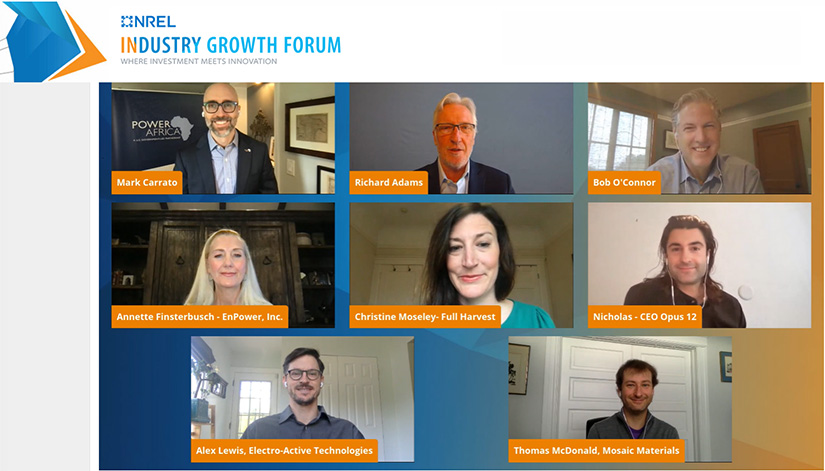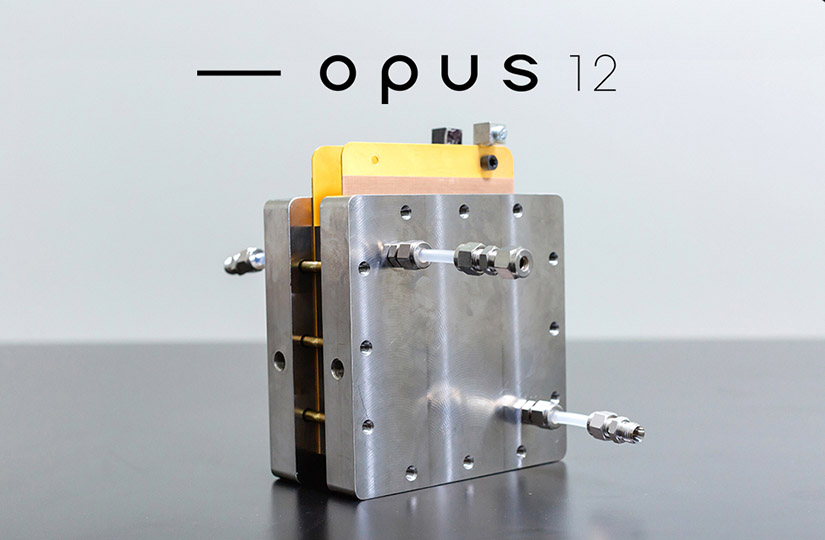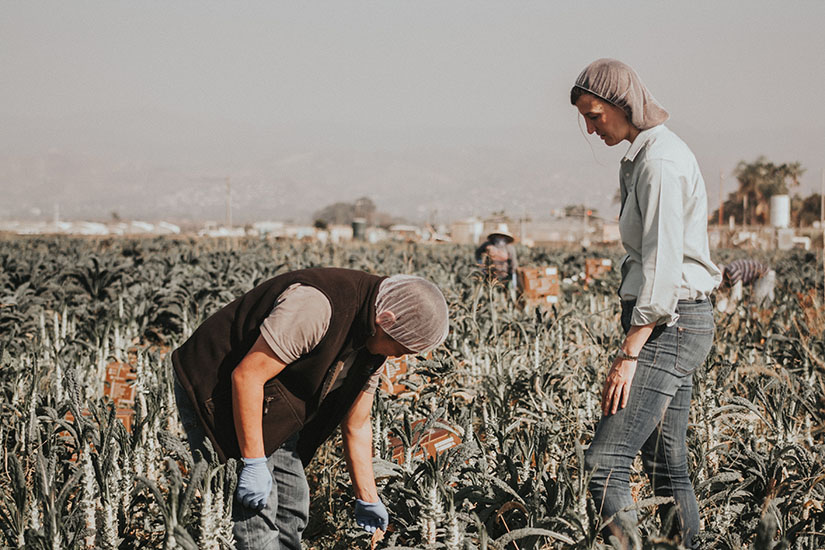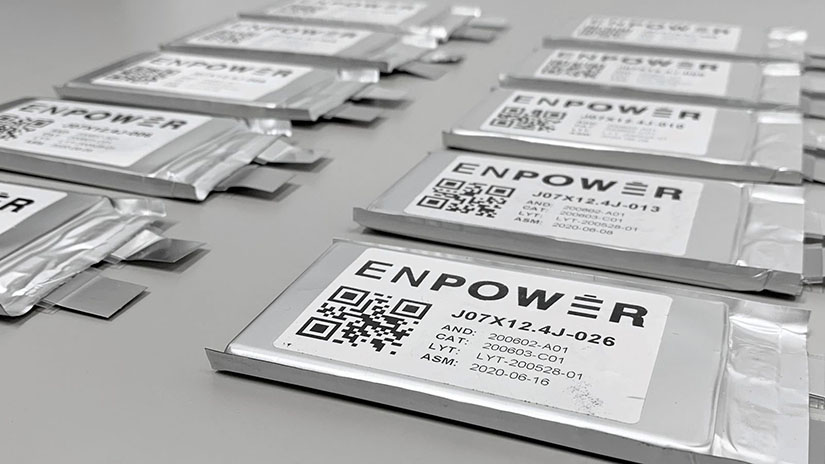Industry Growth Forum Creates Impact in Virtual Setting for Second Straight Year
Event Demonstrates Cleantech Resilience Through Pandemic, Points Toward Bold-Faced Future

Even in its 26th year, amidst a pandemic, the National Renewable Energy Laboratory (NREL) Innovation and Entrepreneurship Center’s (IEC) Industry Growth Forum (IGF)—the premiere cleantech commercialization-acceleration event that aligns promising, preselected startups with venture capitalists looking for their next great investment—set new records.
With the backdrop of strong renewable energy goals announced by the Biden administration, a fresh enthusiasm washed over the record 600-plus participants, undeterred by their virtual surroundings for the second straight year. Just as with the live event, NREL treated attendees to 40 pitch presentations from cleantech entrepreneurs who had been investor-selected from the applicant pool. The virtual venue attracted increased participation from the international community, pulling in representatives from 17 different countries.
“Hope is in the air,” NREL Laboratory Director Martin Keller said in his event-opening remarks. “You are optimistic, and you are looking into the future in an optimistic way,” he continued, addressing the more than 180 investors, representatives from more than 400 startups, and industry experts in attendance.
Opening the final day of the event, Richard Adams, director of the IEC, announced that participating investors confirmed more than 1,200 meetings, several of which equate to a win-win-win for the startups, investors, and downstream beneficiaries of moving those technologies to market. As Vanessa Chan, director of the Department of Energy’s Office of Technology Transitions, touched on during her keynote, splitting focus between technology and market impact can be difficult for researchers. In academia, she said, nowhere are researchers asked how their work will have an impact in the world. Instead, the recognized metric is number of publications.
“It’s not easy to commercialize technologies,” Chan added. “To get research out of labs requires engaging the entire ecosystem early on.”
Since metrics tracking began in 2003, the IGF has raised more than $7 billion to accomplish exactly that—engaging cleantech ecosystem stakeholders to move promising technologies into the marketplace where they can generate real impact.
With uncertainty draped across everything, 2020 proved difficult for most. While IGF indicators pointed toward a slight hiccup in renewable energy investment, it rebounded well, and, according to IGF investor liaison J.A. Colantonio and IGF startup liaison Monali Mujumdar, the future is bright.
After pulling the rabbit out of the hat and flipping the 2020 event to run completely virtually, with no more than six weeks to prepare, organizers and attendees deemed it a success. Following the 2020 event with a record-breaking 2021 was evidence enough of cleantech resilience, but Mujumdar said she believes it will be this year when the applications really start to pile up, indicating this may be just the beginning.

Technology Types Widen at IGF with Biden Administration Priorities
Colantonio pointed to some of the technologies and even company names from this year’s event as strong indicators of a promising outlook.
“Three of the awardees dealt with carbon-capture technology,” he said. “I can’t say that has happened in the past. That’s surely indicative, as are some of the firms represented—names like Zero Carbon Capital and Zero Carbon Partners.”
In addition to carbon-capture technologies, the 2021 IGF picked up new interest from agtech startups, even presenting a pair of awards to one: Full Harvest Technologies, winner of both the IGF 2021 Best Venture and the Growth Stage Outstanding Venture awards for its online marketplace for imperfect and surplus produce that connects farmers with food and beverage manufacturers. In her acceptance comments, Full Harvest Technologies CEO Christine Moseley said, “It’s really, really exciting to see this problem at center stage. This is just the tip of the iceberg for this conversation. It really needs to be front and center.” This particular tech trend is not limited to the IGF, either. NREL’s IEC also manages the Wells Fargo Innovation Incubator (IN2), which recently announced an expansion into sustainable agriculture.

This is not the first time the IGF has seen crossover from other IEC programs, and some presenters have made multiple trips through the IGF itself. In fact, the winner of the 2021 People’s Choice Award, Opus 12, has been through the IGF in the past. After Adams announced Opus 12 as the people’s choice, the company cofounder and CEO, Nicholas Flanders, said, “It’s an honor to receive this, and it means a lot on a personal basis because it was actually through NREL IGF that I met the investors for our very first outside round. We’ve also collaborated with NREL on a couple different grant projects. National labs have played a really important role in our history. This ecosystem has been critical to us, and we really appreciate the recognition for our progress and want to congratulate all the other winners today.”
Electro-Active Technologies, winner of the award for Emerging Markets Outstanding Venture for its modular system designed to convert food waste and renewable electricity, previously participated in DOE’s famed Energy I-Corps prior to its IGF selection. Energy I-Corps is managed by IEC and provides business training to national lab researchers looking for market pathways for their technologies.
While the pandemic created momentary uncertainty for cleantech, the virtual setting it forced did supply some silver linings. Physical space limitations had previously forced organizers to cap attendance, but, in a virtual environment, the ceiling was much higher. That helped facilitate record participation.
Usually, a week prior to the IGF itself, Colantonio and the investors gather for a networking lunch. In the virtual world, this turned into a town hall, but the function was the same.
“The function of the town hall is intended to facilitate networking,” Colantonio said. “It’s really supposed to be a meeting of the minds of these influential inventors to have closed-door conversations.”
Through more than a quarter century, the IGF has become the place to be for not only startups, but investors, especially during a pandemic, which steeply limits in-person event opportunities. Colantonio said the Industry Growth Forum is a “can’t miss event.”
“Some of the investors come back each year just to see their friends and to network with the other investors,” he said. “Many of them are also trying to identify syndication partners they can coinvest with, so it’s important for them to establish those relationships. They don’t want to miss out if all the other investors are participating, and they want to see what everyone else is bringing to the table and see NREL’s guiding expertise.”

2021 Industry Growth Forum Awards
San Francisco-based Full Harvest Technologies won the Best Venture Award as well as Growth Stage Outstanding Venture.
The award for Early-Stage Outstanding Venture went to Mosaic Materials of Alameda, California, for its adsorbent materials designed to selectively capture CO2 in applications ranging from life support to direct air capture.
Phoenix-based EnPower won the Commercialization-Stage Outstanding Venture award for its battery technology designed to deliver both long-range and extreme fast charging for electric vehicles.
Electro-Active Technologies from Knoxville, Tennessee, walked away with the Emerging Markets Outstanding Venture award for its modular system designed to convert food waste and renewable electricity into affordable, renewable hydrogen.
The 2021 IGF People’s Choice award went to Opus 12, from Berkeley, California, for its flexible membrane electrode assembly and process designed to recycle CO2 into cost-competitive chemicals and fuels.
In the end, organizers spread what was traditionally a two-day, in-person event across three days to make it more consumable virtually, and it went off without a hitch. Perhaps IGF program manager Sheila Ebbitt said it best: “A year after everybody has been overwhelmed with video conferences, we were grateful to have so many choose to attend ours.”
For those who missed this year’s event, planning has already begun for IGF 2022. The next Industry Growth Forum will be held April 13–14, in person or perhaps hybrid, at the Gaylord Rockies Resort & Convention Center near Denver International Airport.
For a list of participating companies and sponsors, and for more information on the Industry Growth Forum, visit us online at www.nrelforum.com. For more information on how you can participate in the Industry Growth Forum, contact us at [email protected].
Last Updated May 28, 2025
